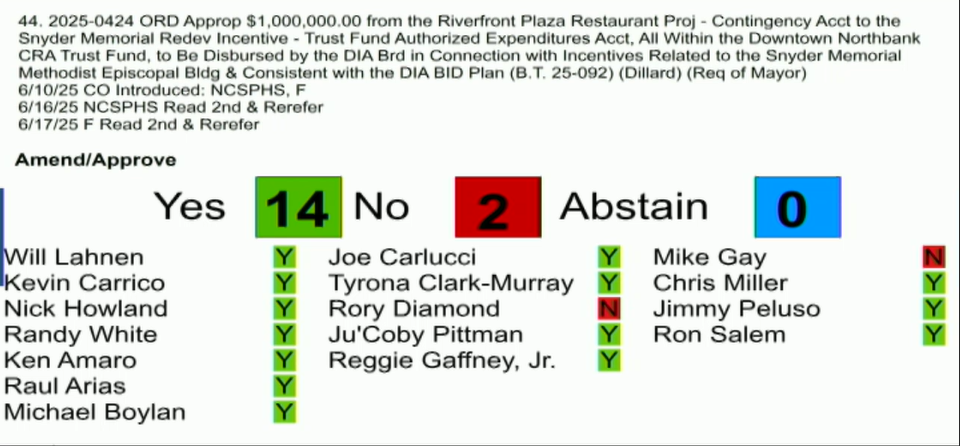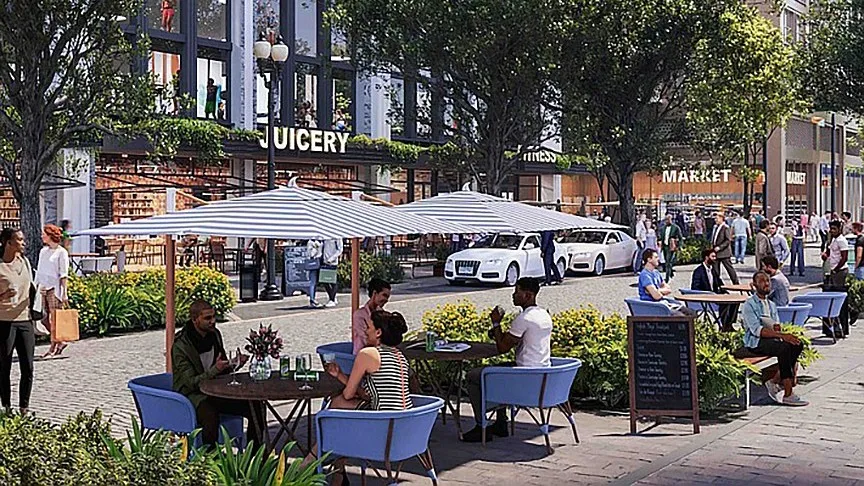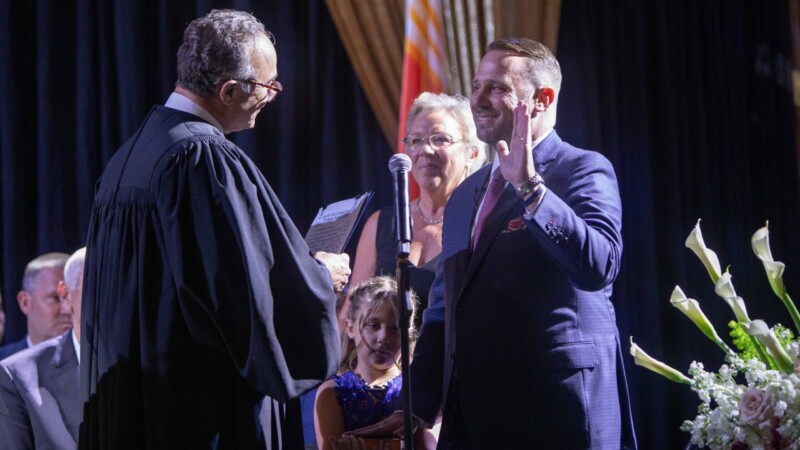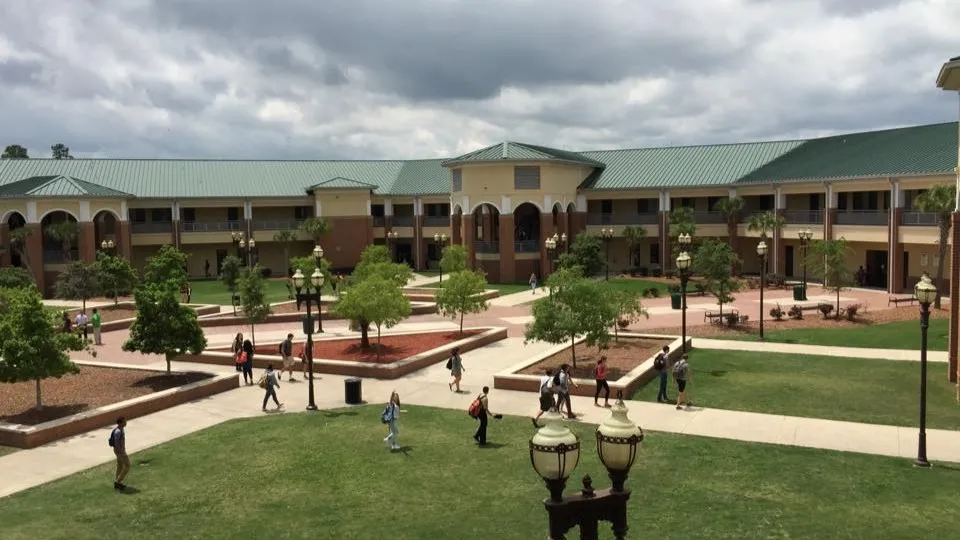Downtown restaurant and bar-goers could soon find more umbrellas, tables and chairs outside their favorite place or pub.
The Jacksonville City Council has cleared the way for restaurants within the Downtown footprint to expand outdoor food and beverage service and seating to the sidewalk next to their establishment.
City lawmakers voted 17-0 on Wednesday for Ordinance 2025-0772, filed by council member Raul Arias. The ordinance amends the city code that defines sidewalk cafes to add “any sidewalk extension that provides more space and amenities for people using the street for extended seating.”
Council members Terrance Freeman and Matt Carlucci did not attend Wednesday’s meeting and were absent for the vote.
The measure, also endorsed by the city’s Downtown Investment Authority board, allows restaurants and bars operating Downtown to serve alcoholic beverages and food on the sidewalk similar to the outdoor cafe spaces in the San Marco, Riverside and Avondale business districts.
Previously, outdoor dining Downtown was limited to patios adjacent to buildings. Arias says the bill is a needed update to the code provision established more than a decade ago.
“Obviously, we’re doing heavy investments in Downtown, not only with growth and dollars and restaurants and bars, but what we’re also doing is now we’re expanding that perimeter. That way, restaurants and bars and cafes can start serving food on the sidewalks, and alcohol, too,” Arias said.
According to the DIA Project Manager Allan DeVault, the legislation continues a previous expansion of outdoor dining with the “parklets” recently added as part of the conversion of Forsyth and Adams streets to two ways.
DeVault says businesses that don’t already have a sidewalk dining permit will still have to apply for one to take advantage of the sidewalk space for dining.
An attorney from the city’s Office of General Counsel told council member Ken Amaro when the bill was going through committees that businesses still have to meet pedestrian safety requirements and to protect the street cafe patrons in city code.
The city also would not be held liable for any traffic incident involving a sidewalk cafe, according to the general counsel’s office.
Restaurant money moved
For people hoping to take in a view with dinner at the proposed restaurant for the soon-to-open Riverfront Plaza, they’ll have to wait a little longer.
Council approved the DIA’s request to move $1 million originally slated to develop a restaurant pad in the park to shore up maintenance needs at the historic Snyder Memorial Methodist Church at 226 N. Laura St., near James Weldon Johnson Park.
The DIA board approved the decision to include a riverfront restaurant in the park’s footprint in February 2024 against the objection of several residents who felt the structure could be vulnerable to flooding and other resiliency issues.
The Snyder Memorial building, built in 1903, is owned by the city and was listed on the Jacksonville History Center’s 2025 list of endangered buildings. The $1 million will be available for the DIA to use as a grant award to a future buyer to help pay for the costs to rehab the building. The money will be added to what the city has already spent on repairs to the structure.
The city and DIA have discussed putting Snyder on the market for sale to a private owner to convert it into a retail, restaurant and/or event space for years and as recently as this spring.
Guy Parola, director of Downtown operations for the DIA, told the council’s Finance Committee on Nov. 4 that the future of the restaurant pad at Riverfront Plaza is uncertain. But new DIA CEO Colin Tarbert has taken an interest in the project, Parola said.
The condition of Snyder, he says, is a more immediate concern.
“We know the restaurant pad is a piece of grass right now that can be very, very patient with its future. Conversely, we have a 112-year-old building that needs HVAC (Heating, Ventilation and Air Conditioning) and really needs somebody so it can be less patient,” Parola said. “While we’re figuring out the future, we definitely need to help the Snyder building along.”

Council voted 14-2 for Ordinance 2025-0424, which moves the money to the building improvements. Council members Rory Diamond and Mike Gay were the two to vote no.
Riverfront Plaza is scheduled for a soft opening Nov. 29, with a full opening including the playground on Dec. 5.
Final piece for UF
Council also finalized a property deal Wednesday that will give the University of Florida board of trustees the final piece of property outlined in its agreement with the city to build its estimated $345 million graduate campus and Florida Semiconductor Institute in LaVilla.
City lawmakers voted 17-0 to approve Ordinance 2020-0783. The ordinance swaps a 2.04-acre land parcel on West Bay Street — owned by The Vestcor Cos. subsidiary VC Cathedral LLC, adjacent to the Prime F. Osborn III Convention Center — for 2.4 acres at 200 Lee St., owned by the city.
The Bay Street property will be incorporated into UF’s development plans. Housing developer Vestcor intends to demolish a structure on the Lee Street parcel to prepare the site for redevelopment, according to documents filed with the bill.
A bill summary says the city-owned property on Lee Street is appraised at $3.23 million while the Vestcor site next to the Prime Osborn is valued at $3.47 million. City officials say acquiring the property for UF will reduce the city’s cash incentives in the graduate campus from $105 million to $100 million.
This property deal is not linked to another controversial land swap deal that traded city land at Riverfront Plaza to developer Gateway Jax in exchange for the former Interline Building in LaVilla. Officials say that swap will allow UF to have ready office space to serve its first student.
This would bring the city’s total investment in the development agreement approved by council in June, including real estate, to about $130.87 million.
UF’s graduate campus in Jacksonville will focus on financial technology programs, semiconductor innovation, health care and a host of other areas. Classes are expected to start next year, and the deal with the city says at least 50 students are enrolled by December 2026.
The campus will be built out over 15 to 20 years, according to the UF and the city.







